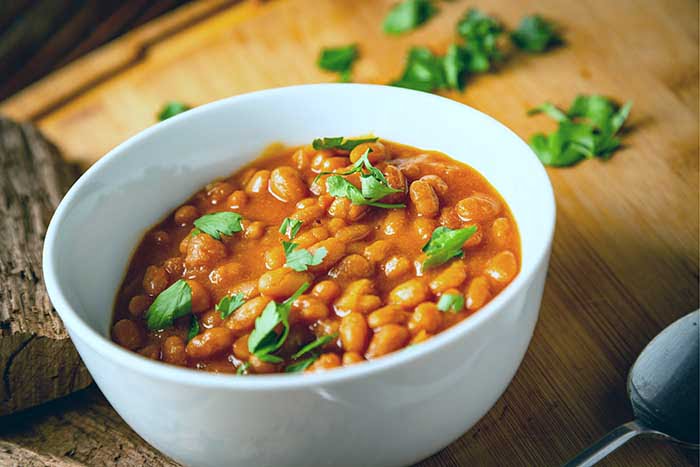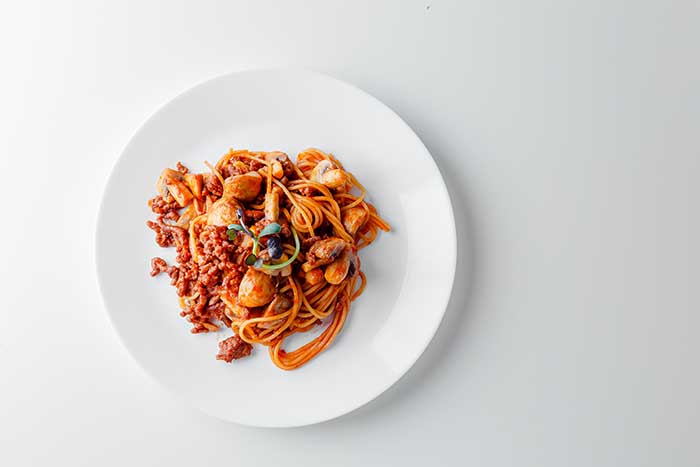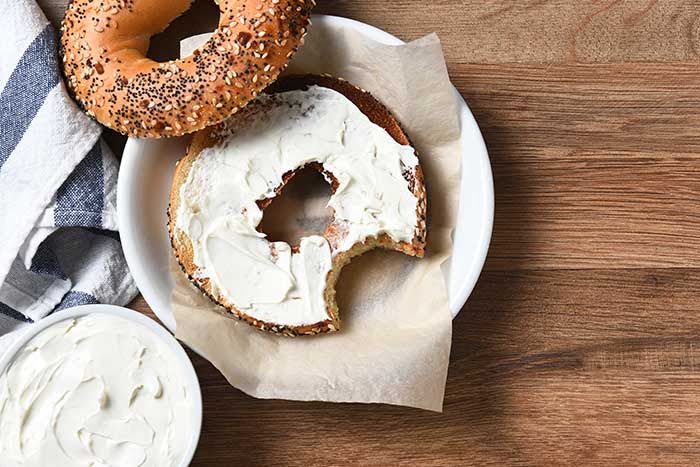The best easy rolling pin alternatives to help you roll dough quickly and effortlessly.
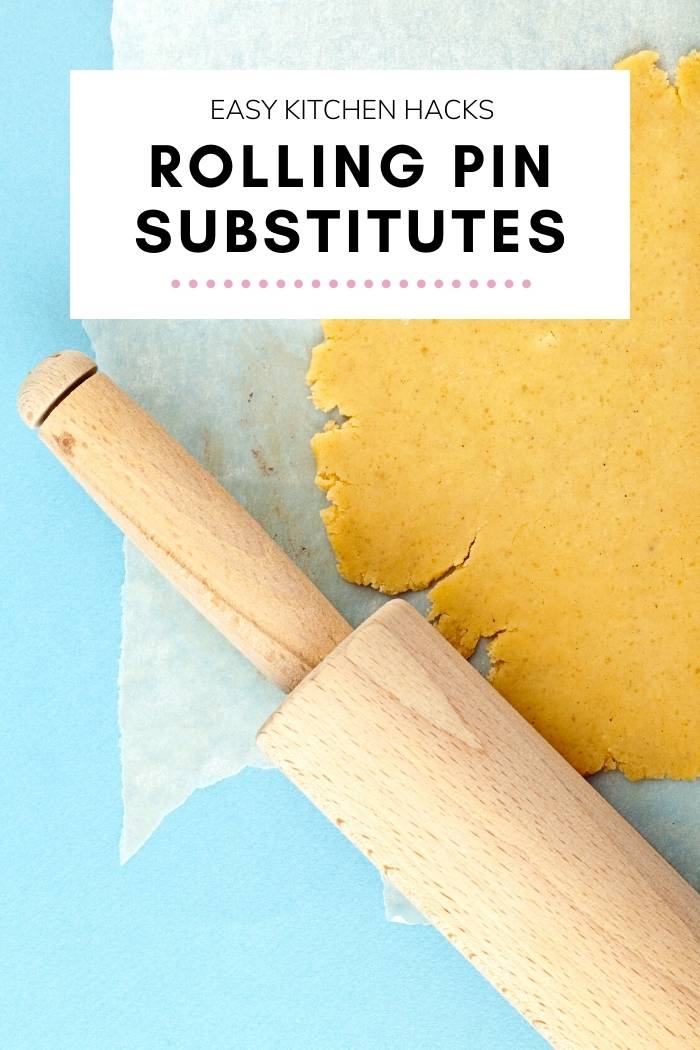
Rolling pins are a kitchen staple, but they’re not always the most convenient tool to use.
If you don’t have one on hand or need an alternative for rolling out dough, there’s no reason to panic! You can use anything from a wine bottle to a water bottle as your new rolling pin substitute.
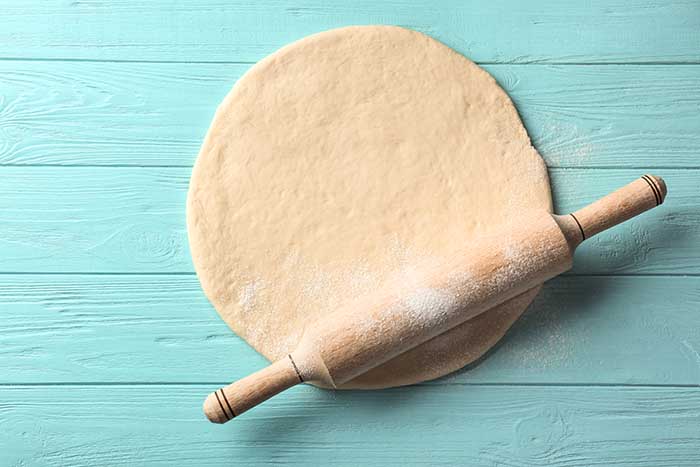
We’ve got all of our favorite tips and tricks for using these household items in place of traditional rolling pins below. Check them out and see which one is best for you!
Discover how you can make do with what you have in the kitchen when it comes time to roll out dough!
Wine Bottle
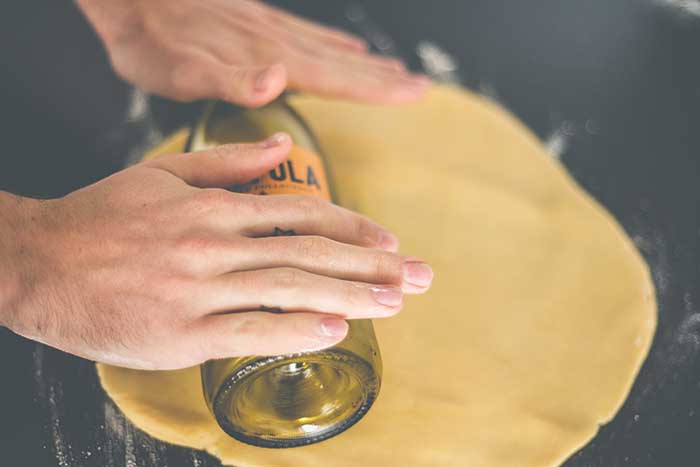
A wine bottle is an excellent substitute for a rolling pin because it is usually handy and shaped like a rolling pin.
It has a handle of sorts. You can use the stem as a handle. It is a good weight (when it has liquid in it). You can adjust the weight by adjusting the amount of fluid in the bottle.
It’s also a great substitute because it is smooth and would make any dents in the dough. However, make sure that the bottle is clean before you use it. If you’re not convinced, you can lay down some parchment paper between the dough and the bottle. This way, you don’t take any chances.
Tall Cylindrical Drinking Glass
A smooth cylindrical drinking glass is probably one of the most convenient because it is most easily accessible. You probably already have one in your cupboard. But it has to be tall so that you get some space to put your hands on. It makes a good substitute because it is smooth and has no rough edges, so it is a good substitute for rolling dough. It may not be a good option for crushing biscuits or herbs.
To use it, wash the glass properly, and dry it thoroughly. Then, you may oil the glass so that the rolling is seamless. You can also lay parchment paper over the dough before rolling it. This way, you avoid it sticking to the glass. One of the downsides is that it can not be filled with water to make it heavier.
Water Bottle
You can also use a cylindrical water bottle instead of a rolling pin. Make sure that it has no ridges. You can fill it with water to make it heavier. If you are using a plastic bottle, you could freeze it, which makes it heavier and better for rolling. To use it, just like the wine bottle, clean it thoroughly first and then dry and then oil it so it moves better.
Soda Can
You can also use cans that are long enough. As such, you may need to use a can that is more than just 300ml. Short cans are probably the reason why this substitute is looked down on. You will need something long enough for you to place your hands on. Also, make sure the can isn’t empty; otherwise, rolling will be more or less impossible as the can collapses when pressure is applied. To help add weight, you could freeze the can.
It’s safer to place parchment paper or plastic wrap between the can and the dough to avoid branding or ink getting onto the food.
Tortilla Press
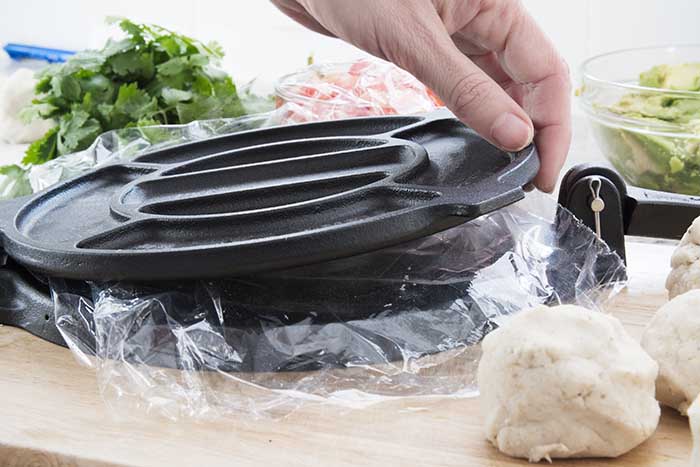
A tortilla press is an obvious starting point because it can easily flat press dough. The problem is that it may not be as readily available as the other substitutes. The advantages are that it has the right weight and it is safe to use for food.
Watermelon
To use a watermelon, place plastic over the dough and also over the watermelon before you roll. This isn’t as common a substitute as you would expect, but the thing is that it’s rather heavy and can be hard to use as such. It may not work well on delicate doughs. The advantage is that it is heavy enough to give you flat dough in a short space of time.
Wooden Dowel
You can also use a wooden dowel in place of a rolling pin. It works better when the dowel is bigger. To use it, wash it clean and towel it dry. To use it, you can also wrap it in plastic to avoid any wooden splinters that could get stuck in the dough as you roll. Use it in the same manner you would use a rolling pin, just by rocking it back and forth.
What are rolling pins used for?
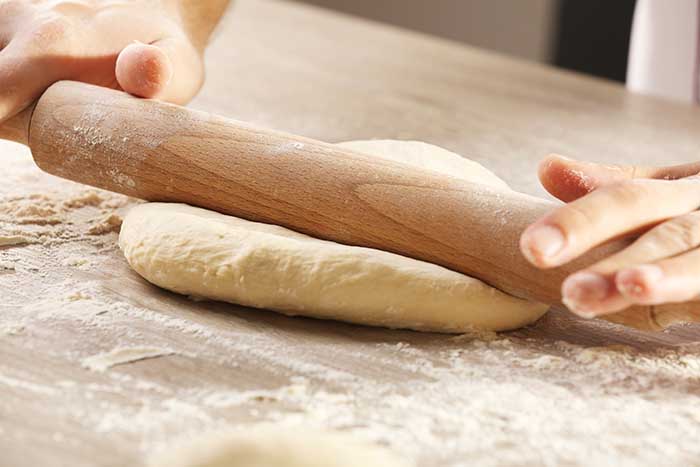
A rolling pin can either be described as a gadget or kitchen utensil. Simply put, it’s a kitchen tool that makes your life easier. They help you get food to be flatter so that it will cook better or bakes better. They are a common feature in a baker’s arsenal because they are used to roll out pastries. This will allow the pastry to stretch and cover more space. It will also let the dough cook through and through.
Rolling pins can also be used to crush crackers and biscuits when you’re making cheesecake recipes that require a crushed biscuit base. You can also use it to tenderize meat or grind herbs that do better when crushed open, like garlic or black peppercorns.
What makes a good rolling pin substitute?
Not all rolling pins are made equal. There are many different shapes and sizes, leading you to wonder what makes a rolling pin a good buy. Certain factors, such as weight, body, and grip, will influence how well you roll.
One of the things to consider is comfort. The thing about using a rolling pin is that you need to make sure that you are comfortable. It should fit comfortably in your hand. If you’re not pleased, the chances are high that you won’t do a thorough job.
As such, the substitute should feel comfortable in your hand. This is primarily influenced by the material used for the replacement.
The other thing you will need to think about is the grip you will have over the substitute you use. If you usually use a rolling pin with handles, you want to make sure to find a replacement with a handle.
A good substitute is something that you have on hand that is non-toxic. Ensure it is safe to use on food and doesn’t have any ink or labels or such things that could contaminate your food. Also, make sure that it is easy to grab. Also, look for a substitute that is either heavy enough or can be made heavy enough.
The shape should resemble a rolling pin. Look for a cylindrical shape, something without edges or corners. It needs to be smooth enough to make sure that there are no creases in the dough. Also, make sure that the substitute is vital and will not break or give in when pressed down or used to roll. Think about what you will be using it for. This will make some factors more important than others. As such, if you will be rolling out dough, you want to make sure the rolling pin substitute is smooth.
How to prevent dough from sticking to your rolling pin (or rolling pin substitute)
- There are a couple of ways to prevent dough from sticking to your rolling pin or the rolling pin substitute, and these include:
- Dusting the rolling pin with flour as well as the dough in question.
- Oiling a glass roller down
- You can also wrap the roller in plastic wrap.
- Also, try to let the dough rest for about 30 minutes before you work it again.

